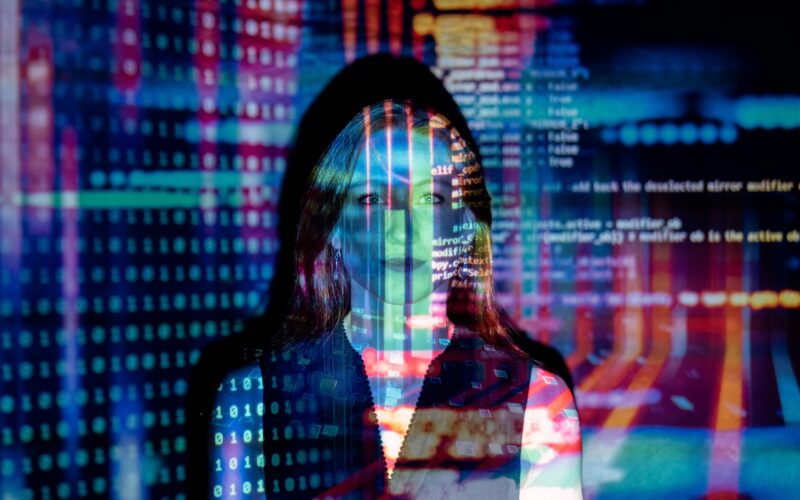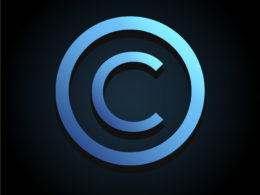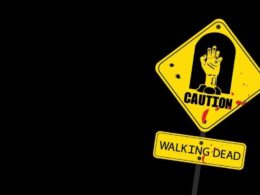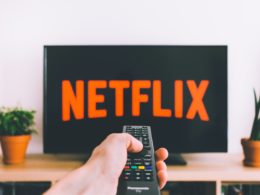An actor’s right of publicity has long been a topic of debate sparking lawsuits over the use of, for example, one’s television persona. Now, with the rise of artificial intelligence making it easier to use specific attributes of actors, or even duplicate them entirely, actors and lawmakers alike are navigating the right of publicity as it relates to modern technology, attempting to answer what constitutes likeness in an AI age.
What “Likeness” Means
The right of publicity protects an individual’s identity, their “likeness,” by granting that person the right to “license” their identity for use.1[1]Publicity, Cornell Legal Information Institute, https://www.law.cornell.edu/wex/publicity (last visited Mar. 15, 2024). A celebrity’s fame is inherently valuable due to public recognition and, often, appreciation from many in society.2[2]Tenn. ex rel. Elvis Presley Int’l Mem. Found. v. Crowell, 733 S.W.2d 89, 92 (Tenn. Ct. App. 1987). Celebrities often choose to take advantage of that value by marketing and profiting off of their own identities.3[3]Id. The right of publicity protects against unwarranted interference with this value. Take, for example, Adam Sandler, whose name and reputation as an actor is immediately recognized by various people. If a business completely unrelated to Sandler used his identity to promote a product, the product’s association with Sandler could entice some audiences to pay more attention to the product, and perhaps feel more compelled to purchase it. Because of this value, many states regulate the use of a celebrity’s identity by allowing them to control how it is used.
In the United States, the right of publicity is created by state law. While other state laws such as, for example, misappropriation may protect one’s right of publicity, only about 50% of states have enacted laws specifically creating protections for this right.4[4]Right of Publicity Statutes & Interactive Map,” Right of Publicity, https://rightofpublicity.com/statutes (last visited Mar. 15, 2024). While it is seemingly straightforward, there are many grey areas regarding the extent to which the right of publicity protects certain persons. Perhaps the biggest question is what falls within the definition of “identity”? In New York, for example, a misdemeanor charge is given to any “person, firm or corporation that uses for advertising purposes, or for the purposes of trade, the name, portrait or picture of any living person without having first obtained the written consent of such person.”5[5]N.Y. Civil Rights Law § 50 (LexisNexis 2003). There is a private right of action in New York, meaning that individuals are able to sue others for appropriating their likeness.6[6]Darden v. OneUnited Bank, 185 A.D.3d 1004, 1005 (N.Y. App. Div. 2020). Comparatively, California’s right of publicity law further details what constitutes identity: “name, voice, signature, photograph, or likeness.”7[7]Cal. Civ. Code § 3344 (Deering 1872).
Hollywood Celebrities Respond to AI-Generated Content Using Their Likeness
AI poses potential challenges to how an actor’s likeness is protected, making it easier to use aspects of, or an entire individual’s identity, and more difficult to know when something is real or artificially generated. Now more than ever, the question of what constitutes one’s identity is coming into play.
Take, for example, actress Scarlett Johansson’s recent legal action against Lisa AI, an image-generating app. According to reports, the X/Twitter account for the Lisa AI app posted an advertisement that included an AI-generated video of Johansson’s appearance and voice.8[8]Kalhan Rosenblatt and Diana Dasrath, Scarlett Johansson demands AI app stop using her likeness in an ad without her permission, NBC News, Nov. 1, 2023. https://www.nbcnews.com/tech/scarlett-johansson-legal-action-ai-app-rcna123248. The ad, which has since seemingly disappeared from the internet begins with a real, behind-the-scenes clip of the actress saying, “What’s up guys? It’s Scarlett and I want you to come with me.”9[9]Id. The ad then transitions into AI-generated photos of Johansson, backed by an AI-generated version of her voice talking about the Lisa AI app.10[10]Id. A disclaimer appeared at the bottom of the ad reading, “Images produced by Lisa AI. It has nothing to do with the person.”11[11]Id. Regardless of this disclaimer, though, the artificially generated “person” in the ad was recognizable as Johansson, so Lisa AI risked illegally using Johansson’s likeness to market their product. The matter was handled privately by Johansson’s attorney, Kevin Yorn, who noted that “We do not take these things lightly. Per our usual course of action in these circumstances, we will deal with it with all legal remedies that we will have.”12[12]Ethan Shanfeld, Scarlett Johansson Takes Legal Action Against AI App That Ripped Off Her Likeness in Advertisement, Variety, Nov. 1, 2023. https://variety.com/2023/digital/news/scarlett-johansson-legal-action-ai-app-ad-likeness-1235773489/ Fake images and videos of celebrities are becoming increasingly prominent, and are appearing more realistic.13[13]Id.
Dudesy (An A.I. Podcast), hosted by Will Sasso and Chad Kultgen, is an AI-generated show that has faced multiple legal issues in recent months.14[14]Dudsey (An A.I. Podcast), IMDB, https://www.imdb.com/title/tt28083660/ In 2023, Tom Brady threatened to sue the hosts of Dudesy for uploading an AI-generated special that imitated Brady.15[15]Ryan Glasspiegel, Tom Brady threatened to sue comedians behind AI standup video, New York Post, Apr. 20, 2023, https://nypost.com/2023/04/20/tom-brady-threatened-to-sue-comedians-over-ai-standup-video/. The hosts explained that they generated Brady’s likeness using footage of him available online, such as interviews.16[16]Id. The podcast was taken down after Brady’s attorney sent a cease-and-desist letter that alleged that “Dudsey had misappropriated Mr. Brady’s name, voice, persona, and likeness to advertise and promote the Dudesy Podcast and Patreon page.”17[17]Will Sasso and Chad Kultgen, The A.I. God Is Born, YouTube, Apr. 18, 2023, at 10:49, https://www.youtube.com/watch?v=zKSsfppMK_0. This threat of legal action, however, did not stop Dudesy from imitating other celebrity figures.18[18]Id.
Just this past January, the estate of George Carlin, an actor and comedian who passed away in 2008, sued Dudsey LLC for releasing an AI-generated podcast titled “George Carlin: I’m Glad I’m Dead (2024).”19[19]Anna Chauvet and Maxime Jarquin, How Suit Over an AI George Carlin May Lead to Legislation, Law360, April 1, 2024. The podcast episode entirely impersonates Carlin’s voice and persona as a comedian.20[20]Id. Furthermore, it was alleged that Dudsey advertised this podcast by using AI-generated images of Carlin in its social media promotions.21[21]Id. The estate’s complaint pointed to Dudsey’s unauthorized use of Carlin’s actual, copyrighted stand-up specials to train the AI to generate a new podcast mimicking Carlin.22[22]Id. Alongside copyright infringement, the estate claimed that Dudsey impermissibly used Carlin’s likeness, violating California’s right of publicity laws, in an effort to profit off of Carlin’s public recognition.23[23]Id. In April the lawsuit settled on private terms, with Carlin’s daughter noting that she hopes the matter can act as “a warning about the dangers posed by AI technologies and the need to appropriate safeguards not just for artists and creatives, but every human on earth.”24[24]Nick Robins-Early, George Carlin’s estate settles lawsuit over comedian’s AI doppleganger, The Guardian, Apr. 3, 2024, https://www.theguardian.com/technology/2024/apr/03/george-carlin-dudesy-podcast-ai-lawsuit
Kultgen, one of Dudesy’s co-hosts, argued against claims of the podcast impermissibly using the likeness of celebrities.25[25]Will Sasso and Chad Kultgen, The A.I. God Is Born “‘Simulated’ literally means not the real thing. Means an imitation, an impression, if you will. This is exactly like anyone else impersonating or doing an impression of a celebrity. In this case an AI’s doing the impression.”26[26]Id. at 11:10
Issues regarding AI-generated replications of actors have become more prominent in recent years, and Hollywood is beginning to respond by implementing new regulations surrounding the use of AI.
SAG-AFTRA 2023 TV/Theatrical Agreement
In late 2023, the Screen Actors Guild – American Federation of Television and Radio Artists released new TV/theatrical contracts outlining agreements for workers in Hollywood, with a large portion of these agreements focusing on AI.27[27]TV/Theatrical Contracts, Screen Actors Guild – American Federation of Television and Radio Artists (November 2023), at 1-6, https://www.sagaftra.org/files/sa_documents/TV-Theatrical_23_Summary_Agreement_Final.pdf.
The agreements distinguish two types of digital replicas: employment-based and independently-created. Employment-based digital replicas of an actor’s voice or likeness means, for example, a film company digitally replicating the main star of an upcoming film. Independently-created replicas are made by third parties.28[28]Id. at 1-3. Limited to certain conditions, the creation and use of replicas both by employers and third-parties generally require advanced notice of the creation, consent for the creation and its use, and compensation for the creation and its use.29[29]Id.
Creating, replicating or digitally altering background actors to, for example, place them in on-screen scenes in which they do not actually appear, requires consent from the actors.30[30]Id. at 4-5. The creation and use of replications and alterations of background actors are subject to similar conditions as are placed on main performers, such as guidelines for compensation and a description of the intended use of the replica or alteration.31[31]Id.
Generative AI, which does not replicate a real person but rather creates an entirely artificial being (i.e. a “synthetic performer”), must be created with consent from an actual performer when a distinguishable attribute (for example, one’s eyes) of theirs is being used on a synthetic performer.32[32]Id. at 3-4.
Because this agreement has only been in effect for a few months, it is still unclear exactly how the new regulations will affect Hollywood’s filmmaking process. While a majority of the SAG-AFTRA board voted in favor of the agreement, some members do not believe the terms of the agreement will be effective and protective against the dangers of AI. Justine Bateman, an AI advisor for SAG-AFTRA, took to “X” (formerly Twitter) to express concerns about the agreement.33[33]Justine Bateman, [describing her role at SAG-AFTRA], X, Nov. 6, 2023, https://twitter.com/JustineBateman/status/1721738381636616501 In a thread, Bateman explained potential loopholes in the agreement that could, for example, bypass consent requirements or pressure actors into consenting to AI usage.34[34]Justine Bateman, [explaining downfalls of the 2023 SAG-AFTRA agreement], X, Nov. 11, 2023, https://twitter.com/JustineBateman/status/1723505358227042601
A Future for Federal Legislation
In terms of right of publicity laws, so long as AI continues developing so rapidly, legislation that only exists on a state level may not be protective enough. A distinctive feature of this technologically-advanced world, both generally and specifically with AI, is the expansiveness of digital creations. Once something is electronically published, whether it be a YouTube advertisement or Netflix series, it is accessible virtually anywhere at any point in time. Concerns over the speed in which AI-generated content can be disseminated have fueled a stronger push for federal regulation regarding AI.
A bill titled the “No AI FRAUD Act” has been introduced to Congress in an effort to prevent fake and unauthorized AI replicas.35[35]No AI FRAUD Act, H.R. 6943, 118th Cong. (2023-2024). This bill would bring right of publicity laws to a federal level, providing protection of identities to actors regardless of the state they reside in.36[36]Id. Some of the reported findings that led to the creation of the bill refer to issues with Hollywood actors. For example, the bill addresses an AI-generated advertisement featuring Tom Hanks from late 2023.37[37]Id. Upon discovering this advertisement, Hanks himself clarified on social media that he was completely unaffiliated with the fake ad.38[38]Derrick Bryson Taylor, Tom Hanks Warns of Dental AD Using A.I. Version of Him, N.Y. Times, Oct. 2, 2023. The actor also spoke on The Adam Buxton Podcast regarding the issues surrounding AI replicas, but did not detail what, if any, legal action he planned to take against them.39[39]Adam Buxton, The Adam Buxton Podcast Number 201, The Adam Buxton Podcast, Apr. 18, 2023, https://www.adam-buxton.co.uk/podcasts/lpbk8k9zbhx54zt-8yl8m-mdzjc-whmf8-2lwfg-emz92-cxnlh-ghwwh-r34cb-sfwnb-kmjcj-x8cgn-gzmzx-xfpt5-x6cma-d8lbc
Hanks stated that “I could be hit by a bus tomorrow, and that’s it, but performances can go on. And outside of the understanding that it’s been done with A.I. or deep-fake, there’ll be nothing to tell you that it’s not me and me alone. And it’s going to have some degree of lifelike quality. That’s certainly an artistic challenge, but it’s also a legal one.”40[40]Derrick Bryson Taylor, Tom Hanks Warns of Dental AD Using A.I. Version of Him.
There is no telling exactly where the right of publicity is headed in film and television. For the foreseeable future, whether a right of publicity will protect actors depends on whether a state provides that protection. However, as more (unauthorized) AI-generated photos and videos of actors are popping up, workers in the film industry have become more vocal in their demand for more protective regulation against AI to enter the legal system.
By: Rachel Nazar
Rachel Nazar is a 2026 J.D. Candidate at Brooklyn Law School
[1] Publicity, Cornell Legal Information Institute, https://www.law.cornell.edu/wex/publicity (last visited Mar. 15, 2024).
[2] Tenn. ex rel. Elvis Presley Int’l Mem. Found. v. Crowell, 733 S.W.2d 89, 92 (Tenn. Ct. App. 1987).
[3] Id.
[4] “Right of Publicity Statutes & Interactive Map,” Right of Publicity, https://rightofpublicity.com/statutes (last visited Mar. 15, 2024).
[5] N.Y. Civil Rights Law § 50 (LexisNexis 2003).
[6] Darden v. OneUnited Bank, 185 A.D.3d 1004, 1005 (N.Y. App. Div. 2020).
[7] Cal. Civ. Code § 3344 (Deering 1872).
[8] Kalhan Rosenblatt and Diana Dasrath, Scarlett Johansson demands AI app stop using her likeness in an ad without her permission, NBC News, Nov. 1, 2023. https://www.nbcnews.com/tech/scarlett-johansson-legal-action-ai-app-rcna123248.
[9] Id.
[10] Id.
[11] Id.
[12] Ethan Shanfeld, Scarlett Johansson Takes Legal Action Against AI App That Ripped Off Her Likeness in Advertisement, Variety, Nov. 1, 2023. https://variety.com/2023/digital/news/scarlett-johansson-legal-action-ai-app-ad-likeness-1235773489/
[13] Id.
[14] Dudsey (An A.I. Podcast), IMDB, https://www.imdb.com/title/tt28083660/
[15] Ryan Glasspiegel, Tom Brady threatened to sue comedians behind AI standup video, New York Post, Apr. 20, 2023, https://nypost.com/2023/04/20/tom-brady-threatened-to-sue-comedians-over-ai-standup-video/.
[16] Id.
[17] Will Sasso and Chad Kultgen, The A.I. God Is Born, YouTube, Apr. 18, 2023, at 10:49, https://www.youtube.com/watch?v=zKSsfppMK_0.
[18] Id.
[19] Anna Chauvet and Maxime Jarquin, How Suit Over an AI George Carlin May Lead to Legislation, Law360, April 1, 2024.
[20] Id.
[21] Id.
[22] Id.
[23] Id.
[24] Nick Robins-Early, George Carlin’s estate settles lawsuit over comedian’s AI doppleganger, The Guardian, Apr. 3, 2024, https://www.theguardian.com/technology/2024/apr/03/george-carlin-dudesy-podcast-ai-lawsuit
[25] Will Sasso and Chad Kultgen, The A.I. God Is Born.
[26] Id.at 11:10
[27] TV/Theatrical Contracts, Screen Actors Guild – American Federation of Television and Radio Artists (November 2023), at 1-6, https://www.sagaftra.org/files/sa_documents/TV-Theatrical_23_Summary_Agreement_Final.pdf.
[28] Id. at 1-3.
[29] Id.
[30] Id. at 4-5.
[31] Id.
[32] Id. at 3-4.
[33] Justine Bateman, [describing her role at SAG-AFTRA], X, Nov. 6, 2023, https://twitter.com/JustineBateman/status/1721738381636616501
[34] Justine Bateman, [explaining downfalls of the 2023 SAG-AFTRA agreement], X, Nov. 11, 2023, https://twitter.com/JustineBateman/status/1723505358227042601
[35] No AI FRAUD Act, H.R. 6943, 118th Cong. (2023-2024).
[36] Id.
[37] Id.
[38] Derrick Bryson Taylor, Tom Hanks Warns of Dental AD Using A.I. Version of Him, N.Y. Times, Oct. 2, 2023.
[39] Adam Buxton, The Adam Buxton Podcast Number 201, The Adam Buxton Podcast, Apr. 18, 2023, https://www.adam-buxton.co.uk/podcasts/lpbk8k9zbhx54zt-8yl8m-mdzjc-whmf8-2lwfg-emz92-cxnlh-ghwwh-r34cb-sfwnb-kmjcj-x8cgn-gzmzx-xfpt5-x6cma-d8lbc
[40] Derrick Bryson Taylor, Tom Hanks Warns of Dental AD Using A.I. Version of Him.




